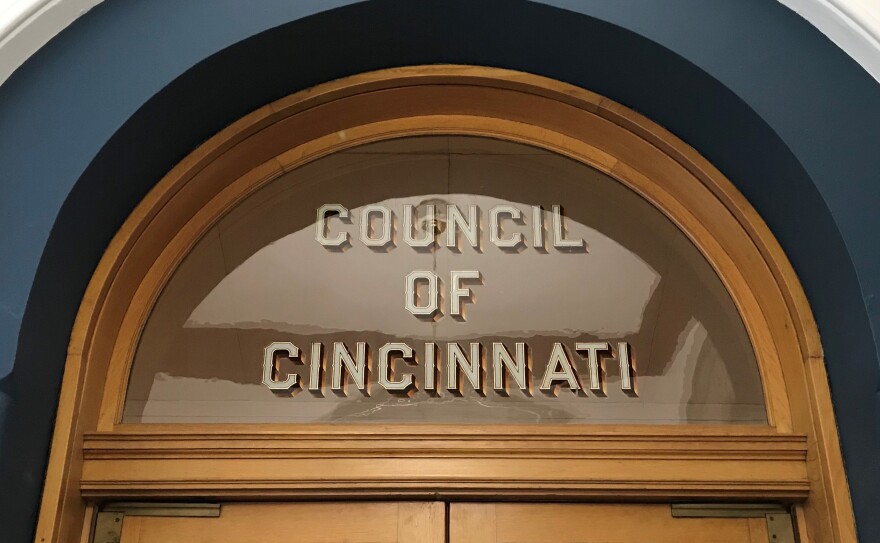The full Cincinnati City Council is expected to take a series of votes Wednesday that will enact a budget for the new fiscal year starting July 1.
Council's Budget and Finance Committee met Tuesday and approved several motions making changes to the spending plan presented by City Manager Patrick Duhaney and Mayor John Cranley.
Council approved roughly $10 million in changes to the more than $1 billion all funds budget.
One of those changes means streetcar passenger service will likely resume in mid-July.
The system was shut down in March because of the COVID-19 pandemic, and the manager and mayor had proposed it remain idle until at least July 1, 2021, to save money.
But six council members supported a plan to resume service at 50% capacity for two months, and then full service will return in September. Plus, it will now be free to ride the streetcar.
The proposed budget included $3 million for an idle, or zombie, streetcar without passengers. But council opted for a plan to spend $4.9 million for service with passengers.
The six votes in favor of streetcar service are important if Cranley vetoes the ordinance. It takes six votes to override a veto, and in the past the mayor has vetoed or threatened to veto items involving the streetcar.
Part of the money to restart streetcar service would come from the 0.3% earning tax in the city used for transit. That tax is used to fund the Southwest Ohio Regional Transit Authority (SORTA). It will be ending in October with Hamilton County voters approving a 0.8% sales tax increase in April to pay for transit.
The city is expecting to have residual money in that account and it would be used for the streetcar.
SORTA issued a statement Tuesday evening objecting the council proposal.
"While SORTA has no objections to council funding the streetcar and reopening it to the public, the organization objects to the use of the earnings tax transit fund to do so," the agency said in a press release. "City Council has operated under a long standing policy and promise to not take money from the transit system to fund the streetcar. By raiding the fund at this precise moment, City Council is taking money from the bus system to fund the streetcar."
SORTA is encouraging council find other money to pay for streetcar service.
Many speakers at the public hearings on the budget had asked council to defund the police department. Some of those people wanted 50% of the department's budget transferred to social service programs.
Council did approve a motion that will take about $1 million from the police budget and transfer it to programs supporting youth. But otherwise, the police budget remains intact.
There's also an additional $10 million for affordable housing, job training and other social services.
Council had wanted that money to come from federal CARES Act funding the city is receiving from Hamilton County. But city lawyers said that may not be legal.
"Department of Treasury guidance for the Coronavirus Relief Fund explicitly states that the funds 'may not be used to fill shortfalls in government revenue to cover expenditures that would not otherwise qualify under the statute,' " a memo from the city solicitor's office reads. "Therefore, any funding mechanism that appears to increase non-qualifying expenditures by replacing funds otherwise identified for qualifying expenditures would be prohibited revenue replacement.
But city administrators did have a backup plan for the $10 million program.
"There are two real buckets: the operating expenditures, which we think we can structure in a way and work within the CARES Act funding to utilize that funding and utilize for those proposed expenditures, and then we avoid the risk of the revenue replacement that we discussed," said attorney William Weber. "For the capital, we have proposed alternative funding."
Those alternate sources involve funding in neighborhood tax increment financing (TIF) accounts. It also would take $1 million from the street repaving program and another $1 million from an account to update the city's vehicle fleet.
Some council members are also concerned about a plan to use Community Development Block Grant funding from the federal government to fund human services agencies in the new fiscal year.
The city would need a waiver from the federal government to use about $6.6 million for that purpose. Administrators are now hopeful such a waiver will come. But they also believe the programs could qualify even without a waiver.
But Council Member Jan-Michele Lemon Kearney is not convinced. She wants human services funding returned to the general fund, which is where it has traditionally been.
"We're hoping it's not going to matter, we're hoping we're going to get the waiver, we're thinking maybe even if we don't, it might work," Kearney said. "There's just no guarantee. Human services money needs to come from the general fund. We need to work that out."
If the money does come from the general fund, it means officials will need to find $6.6 million in that budget for human services. That likely would mean cutting money for other departments in that fund.



